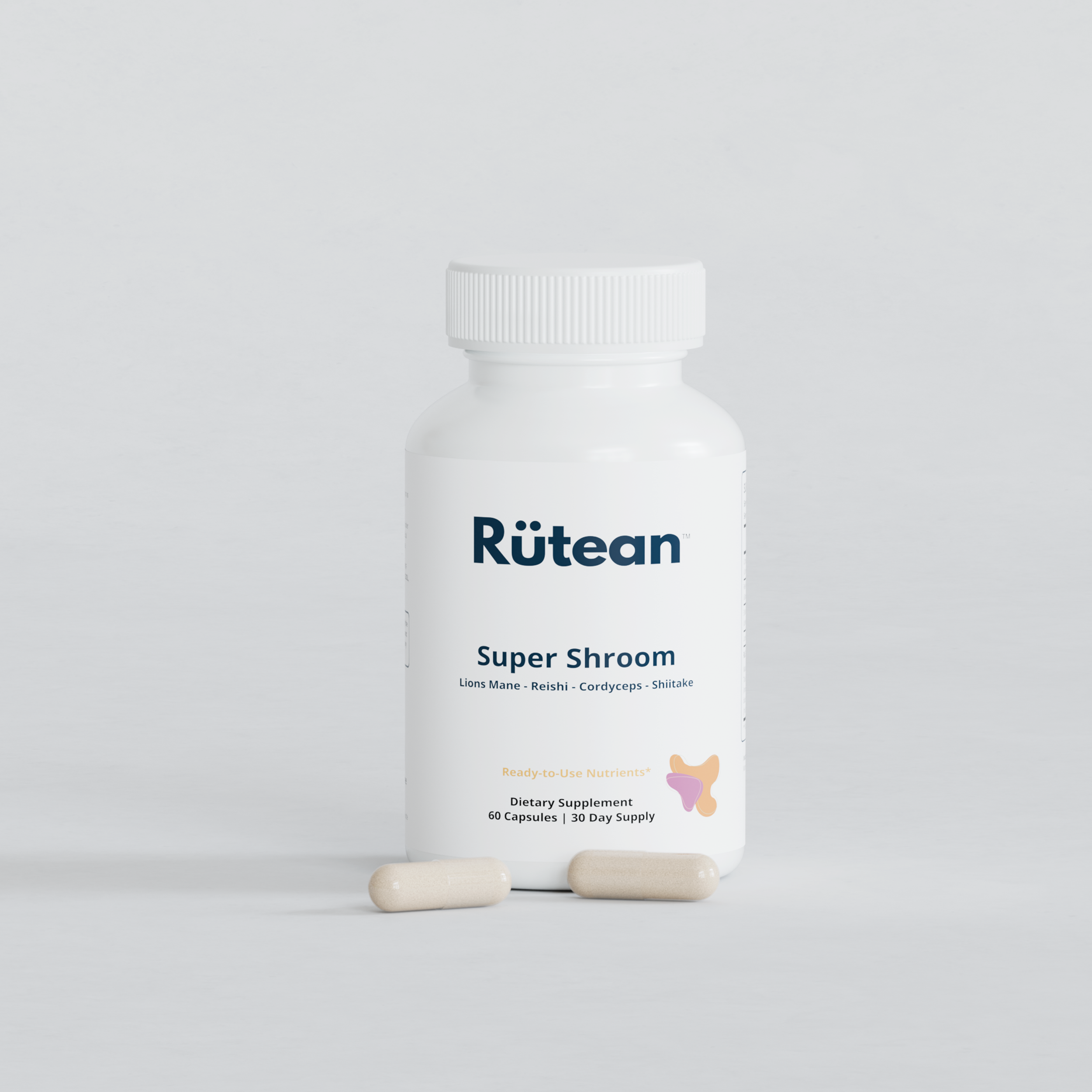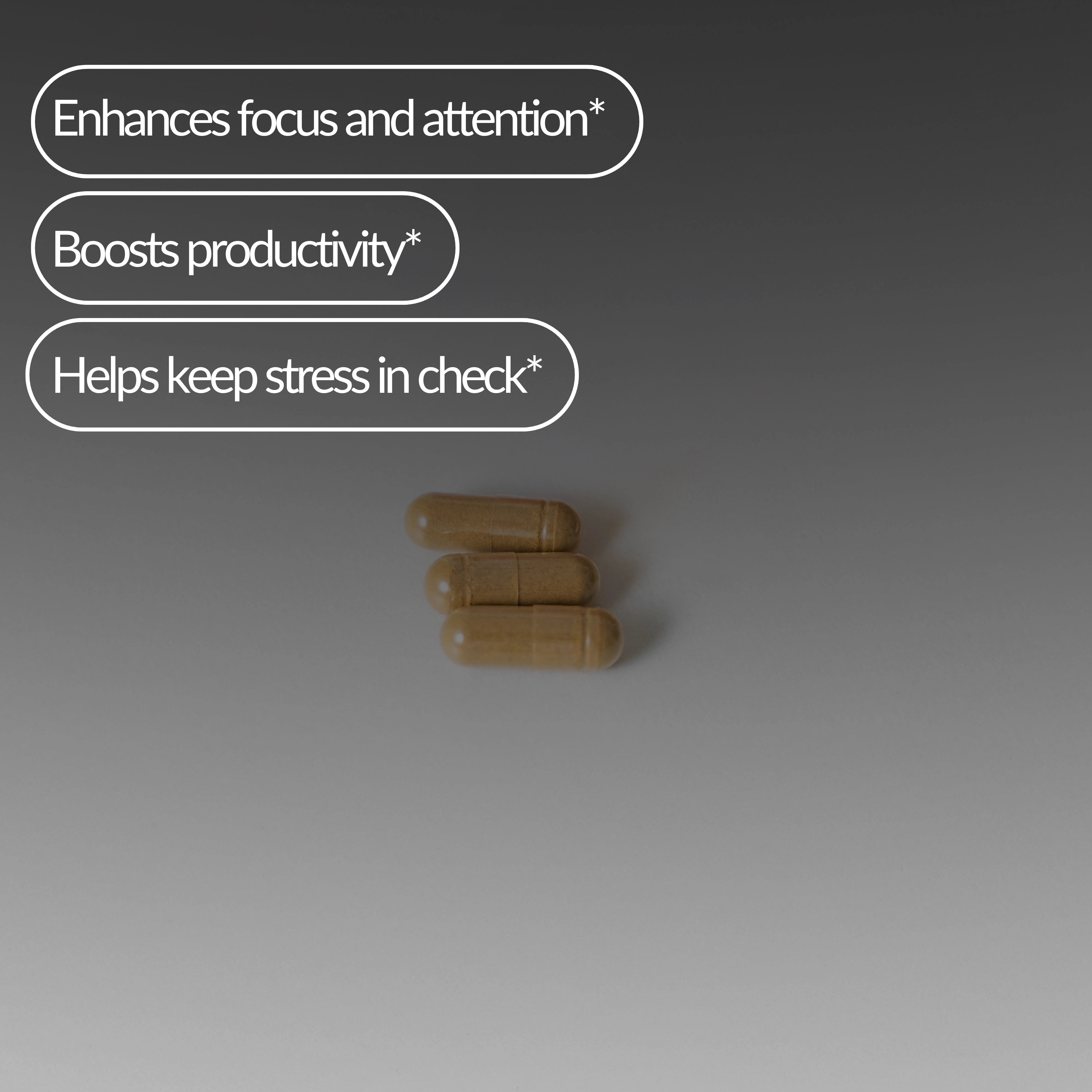Hey there! Have you ever found yourself feeling unusually anxious or on edge and couldn't quite figure out why? You're definitely not alone. Anxiety is like that uninvited guest who shows up at the most inconvenient times, and it's something a lot of us deal with more often than we'd like to admit. But here's something you might not have considered: what if the food you eat—or more precisely, the nutrients you might not be getting enough of—could be playing a role in those anxious feelings?
Now, before we dive deeper, let's get something straight. Anxiety is a complex beast, influenced by a whole host of factors like our genetics, our environment, and yes, our lifestyle choices, including diet. The idea that skipping out on certain nutrients can mess with our mood isn't new, but it's definitely gaining more attention these days. And for a good reason!
In this journey we're about to embark on, we'll explore the unseen heroes of our mental well-being: the essential nutrients. We're talking about the vitamins, minerals, and fats that our bodies crave to keep our brains humming smoothly and our mood on the up and up. Unfortunately, these nutrients don't always make it onto our plates as often as they should, leaving our bodies a bit more vulnerable to the likes of anxiety.
So, if you've ever wondered whether there's more to your anxiety than meets the eye, stick around. We're going to unpack the top nutrients that deserve a regular spot in your diet and why giving your body the nourishment it deserves might just be the key to keeping those anxious feelings at bay.

1 - Understanding Anxiety
So, what's the deal with anxiety, anyway? Imagine it as your body's natural alarm system—except sometimes, it's a bit too eager, sounding off alarms when there's no real danger. It's like having a super sensitive car alarm that goes off at the slightest breeze. Annoying, right? Anxiety can make you feel all sorts of things: jittery, nervous, or like you're carrying the weight of the world on your shoulders. And it's pretty common, too, affecting millions of folks around the globe.
But here's where it gets interesting: anxiety isn't just about biting your nails or feeling butterflies in your stomach. It's a complex emotional cocktail mixed up by a bunch of different factors. Genetics play a role, kind of like inheriting your grandma's eye color or your dad's knack for telling terrible jokes. Then there's your environment—everything from the stress of a 9-to-5 job to the chaos of city living can crank up your anxiety levels. And, of course, we can't forget about lifestyle, where diet waltzes in. You see, what we eat feeds not just our bodies but also our brains. Miss out on certain nutrients, and your brain might start feeling a bit under the weather, contributing to those anxious vibes[1][2].
2 - Role of Nutrition in Mental Health
Alright, folks, let's get down to the nitty-gritty: how exactly does what we eat affect our mental well-being? Imagine your brain as this super sophisticated, high-tech gadget that needs the right kind of juice to keep running smoothly. And by juice, I mean those vital nutrients that come from the food we munch on.
Our brains are pretty demanding. They're always buzzing, processing thoughts, emotions, and memories, and to do all that heavy lifting, they need a bunch of different nutrients. These nutrients are the secret ingredients in creating neurotransmitters, the brain's way of sending snappy texts across its network. These little messengers have a big job, influencing everything from our mood swings to how well we sleep at night. When our gut is brimming with good vibes (plenty of nutrients), it sends love letters to our brain. But if it's out of whack, it's more like sending SOS signals, which can amp up the anxiety. Research shows that a balanced diet isn't just a boon for your bod; it's critical for keeping your mental game strong[3][4]. From pivotal studies highlighting the importance of nutrition for mental health to the discovery of the gut-brain connection, the evidence is clear: what you eat directly impacts how you feel, mentally and emotionally.
3 - Nutrients Linked to Anxiety and Their Function
References
1 - Hettema, J. M., Neale, M. C., & Kendler, K. S. (2001). A review and meta-analysis of the genetic epidemiology of anxiety disorders. American Journal of Psychiatry, 158(10), 1568-1578.
2 - Jacka, F. N., O’Neil, A., Opie, R., Itsiopoulos, C., Cotton, S., Mohebbi, M., Castle, D., Dash, S., Mihalopoulos, C., Chatterton, M. L., Brazionis, L., Dean, O. M., Hodge, A. M., & Berk, M. (2017). BMC Medicine, 15(1), 23.
3 - Sarris, J. et al., (2015). Lancet Psychiatry, 2(3), 271-274.
4 - Foster, J. A., & Neufeld, K. A. M. (2013). Trends in Neurosciences, 36(5), 305-312.
5 - Boyle, N. B., Lawton, C., & Dye, L. (2017). The Effects of Magnesium Supplementation on Subjective Anxiety and Stress—A Systematic Review. Nutrients, 9(5), 429.
6 - Su, K. P., Tseng, P. T., Lin, P. Y., Okubo, R., Chen, T. Y., Chen, Y. W., & Matsuoka, Y. J. (2018). JAMA Network Open, 1(5), e182327.
7 - Anglin, R. E., Samaan, Z., Walter, S. D., & McDonald, S. D. (2013). Vitamin D deficiency and depression in adults: systematic review and meta-analysis. The British Journal of Psychiatry, 202(2), 100-107. This meta-analysis reveals a significant association between vitamin D deficiency and depression, highlighting the mood-regulating effects of vitamin D.
8 - Kennedy, D. O. (2016). B Vitamins and the Brain: Mechanisms, Dose and Efficacy—A Review. Nutrients, 8(2), 68.
9 - Beard, J. L. (2003). Iron Deficiency Alters Brain Development and Functioning. The Journal of Nutrition, 133(5), 1468S-1472S.
10 - Swardfager, W., Herrmann, N., McIntyre, R. S., Mazereeuw, G., Goldberger, K., Cha, D. S., Schwartz, Y., & Lanctôt, K. L. (2013). Potential roles of zinc in the pathophysiology and treatment of major depressive disorder. Neuroscience & Biobehavioral Reviews, 37(5), 911-929.
11 - Strasser, B., Gostner, J. M., & Fuchs, D. (2016). Mood, food, and cognition: role of tryptophan and serotonin. Current Opinion in Clinical Nutrition and Metabolic Care, 19(1), 55-61.









